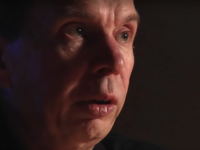A couple of years ago I set out to shine a light on stellar fusion records in a decade where the genre started running out of ideas, passion and gumption. Well perhaps that’s not entirely true, but the good ones aren’t as abundant in the 80s as they were in the 70s, which tends to make the latter standout albums stand out even more.
On the first go around, John Scofield factored in heavily on that list with two entries and a contributor on a third. This time, Pat Metheny dominates the selection, with one entry and being a factor on two more. There’s no escaping the enormous footprint he left on jazz and its fringes during this time. If I ever undertake a third list, I’m liable to put another Metheny record on it.
Generally speaking, though, these records come mainly from artists who made great records in the 90s, too, and some from the classic 70s; they have been just too consistent throughout their careers to let a little thing like the 80s get them down.
Michael Brecker Michael Brecker (1987)
Brecker started his solo career fairly late, after nearly twenty years making a lasting impact as a sideman and one half of the Brecker Brothers. He must have sensed that because his first album presented not just his instantly recognizable and highly articulate tenor sax, but he quickly established a unique and fully developed fusion style that is heavily informed by bop, as well as rock, world music and modern creative music (some of which was attributable to his frequent collaborator at the time, Don Grolnick). The first two songs from his 1987 debut are nothing short of breathtaking: the soul-wrenching texture within “Sea Glass” and the mind-blowing saxophone tour-de-force that begins “Syzygy,” John Coltrane’s “Countdown” for a new generation of saxophonists who followed Brecker. A star-studded lineup that includes Metheny, Jack DeJohnette, Kenny Kirkland and Charlie Haden (with Grolnick producing), Michael Brecker could just as easily fit on a list of best mainstream jazz albums of the 80s. But its nimble straddling of the line is a large part of what makes it brilliant.
Lyle Mays Lyle Mays (1985)
The Pat Metheny Group has had several bassists and drummers in its long history but only one pianist, Lyle Mays. Mays had always seemed content to make a career as Metheny’s main partner within the Group, but finally in 1985 — reportedly with some coaxing by Metheny himself — he stepped outside of PMG and came out with this new age jazz beaut. Yes, it does sound like his regular gig in several places, especially on the opening, buoyant “Highland Aire” and especially the tightly interwoven “Slink,” but there are moments you’d probably never find on a Metheny Group album, such as the strikingly gorgeous solo piano piece “Mirror Of The Heart.” Also, the appearance of Bill Frisell, even this early in his career, plays a big hand in shaping the harmonic character of many of these songs, such as the rough edge he lends to “Ascent.”. Mild avant-garde leanings pop up on “Teiko” and “Northern Lights” but Mays doesn’t have Metheny’s yen for venturing very far outside, but he does take care to make the music interesting even as the mood is mostly ambient. Moreover, this is a fairly contemporary sounding record that manages to maintain a timeless feel.
Mays has only made records only sporadically after this one (and none since 2000), and he’s declined to take the opportunity to truly follow-up on this very strong debut that confirmed Mays’ key contributions to the unique personality of the Pat Metheny Group. Thus,Lyle Mays stands alone.
David Torn Cloud About Mercury (1987)
Contrary to what its reputation might be, ECM Records had never been averse to hosting recordings of fusion recordings far apart from the acoustic-dominant records it’s been most closely identified with, and there are abundant examples throughout its history. Knowing this, Cloud About Mercury being an ECM release still takes some getting used to. Torn can create some pretty alien but compelling sounds and textures, he’s nearly peerless in that regard amongst guitarists. While other fusion albums by the label tend to have jazz underpinnings, Torn doesn’t really think in those terms when creating his own music. With Cloud, Torn established his signature in combining cutting-edge electronics and acoustic instruments, improvisation with otherworldly grooves and Western and non-Western music forms. Even now, many of the forward-thinking progressive jazz musicians are trying to do those very things.
It certainly didn’t hurt that King Crimson’s rhythm section (Tony Levin and Bill Bruford) was on this album. And, new age trumpeter Mark Isham. I’m still trying to get used to the idea of putting Isham on such an experimental record, too. But Torn knew what he was doing, as the resulting music makes clear.
Jean-Luc Ponty Mystical Adventures (1982)
Mystical Adventures is really the end of a solid line of “70s” fusion records Ponty made starting with Upon The Wings Of Music in 1975. Beyond presenting another one of his signature suites for one last time, and great individual contributions from drummer Rayford Griffin, guitarist Jamie Glaser and American Idol‘s Randy Jackson, Mystical Adventures is the best engineered of these string of classic recordings. Other highlights are Jackson’s funky, melodic bass solo on “Rhythms of Hope” and an out-of-the-blue sleek cover of the minor Stevie Wonder hit, “As.” Click here for my earlier, in-depth take on Mystical Adventures.
Pat Metheny Group First Circle (1984)
PMG records tend to fall into two groups: accessible and not very accessible, save for a track or two. First Circle nominally falls into the former (if you ignore “Forward March”) but even very melodic tracks like “The First Circle” and “Tell It All” has complex rhythmic patterns and multilayered motifs that invite you to dig deep into these songs after the hooks have instantly roped you in. Furthermore, Pat’s guitar solo on “Tell It All” is flat-out killer. Click here for my earlier, in-depth take on First Circle.
[amazon_enhanced asin=”B000V657EM” /] [amazon_enhanced asin=”B003A97BQ4″ /] [amazon_enhanced asin=”B00002610Z” /] [amazon_enhanced asin=”B006HLBCYY” /] [amazon_enhanced asin=”B0000261UH” /]




I was around for the First Circle tour wnen they played Wolftrap. They stunned the audience by starting the show from the rear of the theater, playing a bass drum, a bell, a trumpet, etc to the first song on the album, the dissonant “Forward March”. Then, once on the stage, they switched to their conventional instruments and played the upbeat “Yolanda, You Learn”. Off we went into a fabulous evening!
I got to witness that too, best concert opening ever. Our own Mark Saleski tells us about his own experience with “Forward March” live, here: http://somethingelsereviews.com/2013/03/20/wtf-wednesdays-pat-metheny-group-forward-march-1984/